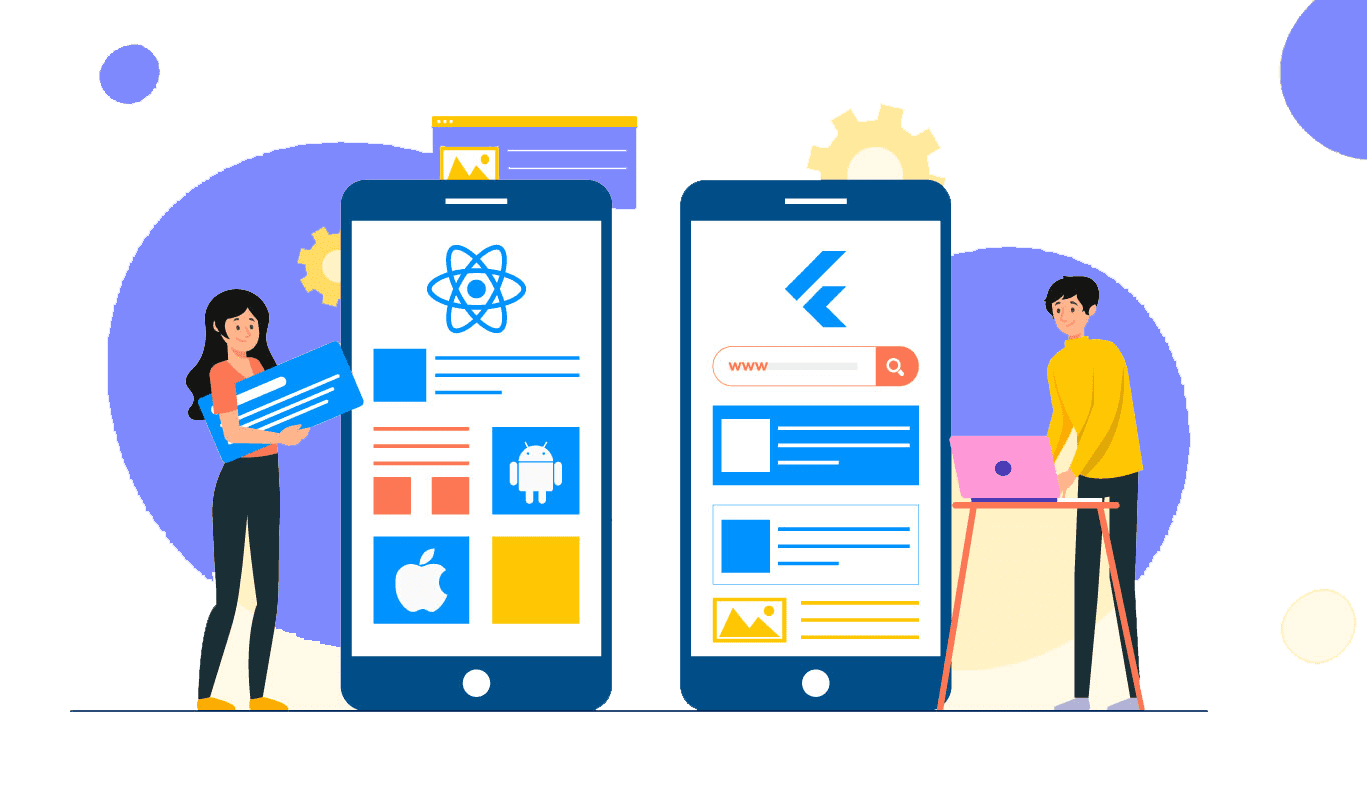HYBRID APP
DEVELOPMENT
Empower your businesses to harness advantages of cross-platform development.
Hybrid app development involves creating mobile applications that combine elements of both web and native apps. Constructed with HTML, CSS, and JavaScript, these apps are enveloped within native containers, allowing installation and seamless functionality. Hybrid app development involves crafting mobile apps that operate on various platforms like iOS and Android, utilizing only one shared codebase.

Want your app to be accessible on multiple platforms such as iOS and Android? You may choose hybrid app development. Reach a wider audience without need to develop separate apps for each platform. Have budget constraints? Opt for hybrid app development as it offers a cost-effective solution. Developing a single codebase that can be used for multiple platforms, saves both time and resources compared to building separate native apps.
React Native
Developed by Facebook, React Native is a popular hybrid app development framework that allows developers to build apps using JavaScript and React. It provides a near-native user experience and access to native device features.
Flutter
Created by Google, Flutter is an open-source UI toolkit that enables developers to build high-performance hybrid apps using a single codebase written in Dart. It offers a rich set of pre-built widgets and smooth animations.
Kotlin
Kotlin has quickly gained popularity among Android developers due to its many advantages over Java. Its interoperability with Java, concise syntax, null safety, coroutines, and improved APIs make it a strong contender for building Android applications.
Ionic
Ionic is a widely used hybrid app development framework that uses web technologies such as HTML, CSS, and JavaScript. It offers a comprehensive library of UI components and seamless integration with popular frameworks like Angular.









